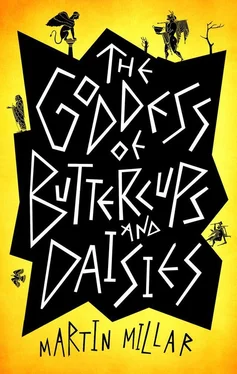Olympus, Mount
The highest mountain in Greece. In Greek mythology, Mount Olympus was the home of the Gods.
Pandionis
In the 5th century BC, Athenian citizens were organised into ten tribes, of which Pandionis was one. Each tribe contained members from the city itself, and from the surrounding region of Attica. The Pandionis tribe was named after Pandion, a legendary king of Athens.
Parthenon
A temple on the Acropolis, famed in ancient and modern times. The Parthenon was dedicated to the Goddess Athena. It was part of the rebuilding project carried out by Pericles after the destruction caused by the Persian invasion in 480 BC. The Parthenon housed a huge ivory and gold statue of Athena, regarded as one of the wonders of the ancient world, sculpted by Phidias. The Parthenon also served as a treasury.
Piraeus
Port, harbour and shipyard, south-west of Athens, and the base of its powerful fleet. The corridor of land between Athens and Piraeus was enclosed and protected by the Long Walls, constructed by order of Pericles in the mid 5th century BC.
Pnyx
A hill in Athens. Citizens gathered on the Pnyx to hold their democratic assemblies.
Salamis
An island about a mile from the coast at Piraeus. In 480 BC, around 60 years before events in this book, the combined navy of the Greek city-states, led by Athens, destroyed the Persian fleet in the narrow strait between Salamis and the mainland. The Persian King, Xerxes, immediately fled. His invading army, which had occupied Athens, was soon annihilated.
Scythian Archers
The Scythian Archers were slaves, owned by the state, who acted as guards or watchmen in Athens, making up some sort of police force. Historians today know very little about them.
Sparta
Greek city-state, Athens’ main rival for supremacy in Greece during the 5th century BC. Famed for their military training, the Spartan army was regarded as unbeatable at this time. Athens was the dominant naval force, but they were unable to match Sparta on land, and were forced to withdraw behind their walls when the Spartans ventured into Attica. Shortly before the time of this book, Athens had scored an unexpected victory over a Spartan force at Pylos, and taken Spartan prisoners. These prisoners gave Athens a powerful bargaining chip in negotiations.
Symposiarch
The Symposiarch acted as master of ceremonies at the symposium. His main duty was to regulate drinking. Athenians always diluted their wine with water. (Wine in ancient Greece may have been stronger than it is today.) The symposiarch was responsible for deciding by how much the wine should be diluted, and how often drinks were passed round. It was bad form for a symposium to descend into a drunken rabble, and the symposiarch was supposed to prevent this from happening. Despite this, it was known to occur.
Symposium
A drinking party. Usually associated with the educated gentlemen of Athens. Activities could vary, from serious philosophical and political discussions, to heavy drinking and carousing with flute-girls.
Tetradrachm
Athenian silver coin, equal to four drachma. Widely used in the ancient Greek world.
Troy
City in Anatolia, now part of modern Turkey. Site of the famous Trojan war, as recounted by Homer. While Homer’s epic contains many mythical elements, many modern scholars believe that there was a war between Greeks and Trojans, probably around 1200 BC.
I admire the ancient Athenians for many reasons. I like their architecture, their statues, their pottery and their writing. They had good armour too. I admire their bravery. They were responsible for repelling two huge invasions from the east, defeating the Persian Kings, Darius and Xerxes. Other Greek states helped in the wars but, in my not-to-be-relied-upon historical opinion, the Greek successes were mainly down to the Athenians.
Mostly I admire them for inventing democracy. It was a new idea that all citizens should have a say in the running of their nation. It was a brilliant innovation, and a step forward for the world. It’s true that Athenian democracy did not extend to the universal franchise we’d expect today, but they made more progress in a generation than most other countries would manage in the next 2000 years.
Not everything about Athens was good. They spent a lot of time fighting and arguing with other Greek city-states. They made some disastrous foreign policy decisions, and the continual warfare led to their eventual downfall. Nonetheless, the great city-state of Athens, at its peak in the fifth century BC, left a huge mark on the world.
I’ve tried setting a novel in ancient Athens before, but it never really worked, and I abandoned these earlier efforts. It wasn’t until I decided to make it revolve around Aristophanes that my book started to make sense. Aristophanes’ riotous comedies helped to set the tone. If the Goddess of Buttercups and Daisies isn’t exactly historical, containing as it does visits from nymphs and Amazons, well, Aristophanes laid the groundwork for this long ago, with his combination of real-life Athenians, Gods, and mythical creatures, all coming together in outlandish and improbable encounters. I’m very keen on Aristophanes. Despite the often-farcical nature of his plays, there is no-one better for telling you what life was actually like in the ancient city. These comedies might lack the grandeur of the great tragic writers, but they’re the best place to learn about the sausage sellers, jurymen, farmers, and squabbling politicians who actually lived there.
Despite the various non-historical visitors who appear in the book, it is set in a real historical period in Athens. In 421 BC, Athens and Sparta had been at war for most of the past decade. Many Athenians were sick of the fighting, including Aristophanes. However there were plenty of people still in favour of war, which is where my book begins. Aristophanes did stage a play called Peace at the Dionysia in 421 BC, and there was a peace conference between Athens and Sparta. The comic poets Leucon and Eupolis both existed, and were Aristophanes’ rivals for the prize, although little is known today of their work. Nicias and Hyperbolus were real politicians. Callias was the richest man in Athens, and Alcibiades was a notorious young aristocrat. Theodota the hetaera lived in Athens too. Her encounter with Socrates is described by Xenophon, and they do seem to get on rather well. As for Bremusa the Amazon and Idomeneus of Crete, they are both characters I borrowed from Greek Myth. Luxos’s poem about the Goddess Athena unfortunately did not originate with me; it’s my interpretation of an ancient Greek hymn to Athena.












